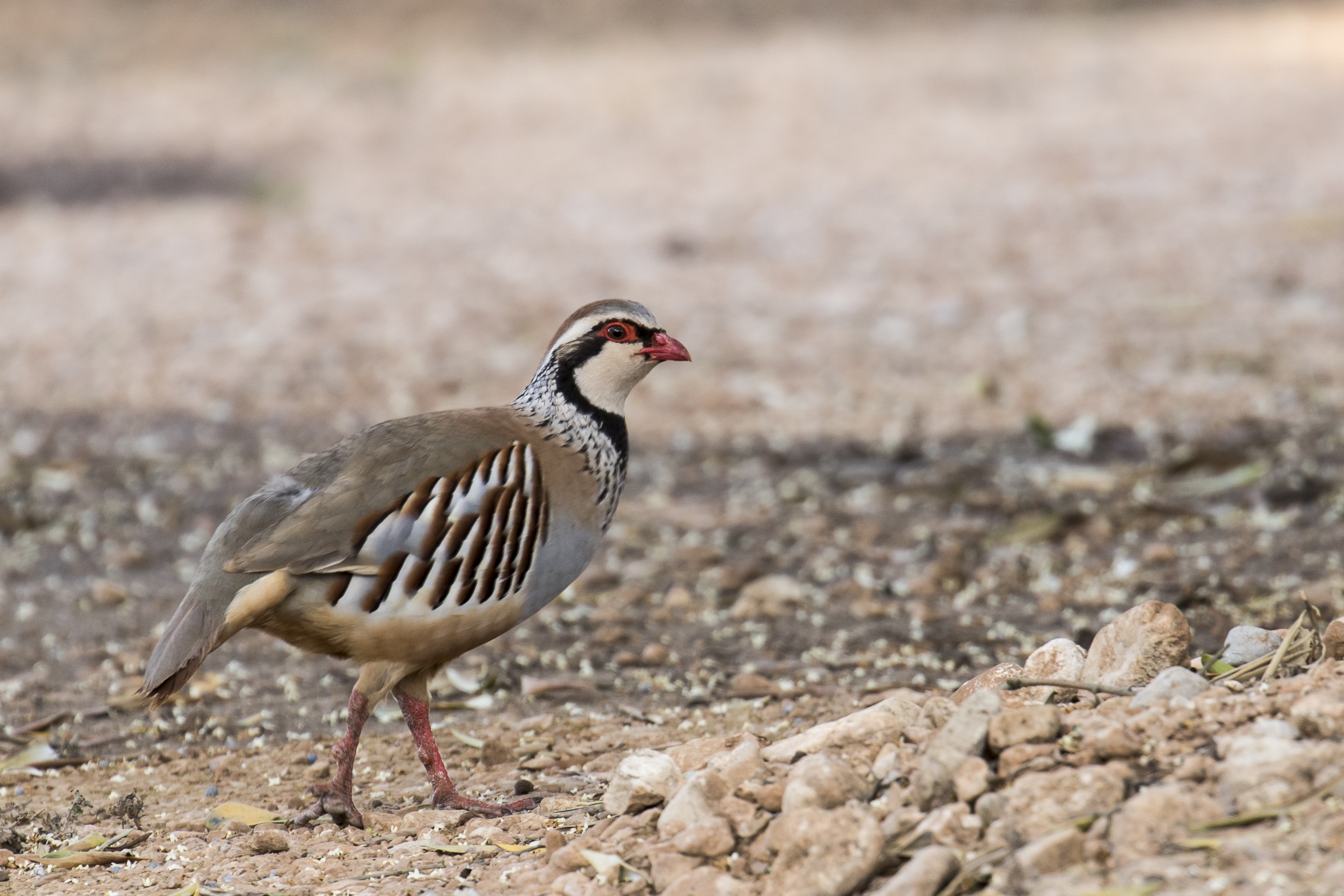Partridge
The Hungarian partridge, often referred to as the grey partridge, is a small, plump game bird native to Europe and parts of Asia. Introduced to North America as a game bird, it quickly found a home in the diverse landscapes of Alberta. Beyond being a target for hunters, this bird is a gourmet delight, celebrated for its tender meat and rich flavour.

More on Partridge
About
The Hungarian partridge boasts a predominantly grey-brown plumage with chestnut markings and a distinctive orange face. It prefers open country, making Alberta's vast prairies, farmlands, and grasslands an ideal habitat. This ground-dwelling bird feeds on seeds, grains, and small invertebrates. Over the years, its adaptability has allowed it to flourish in Alberta's varied terrains, often in close proximity to agricultural areas. If you're lucky, you can even see them wandering about the streets of Calgary and other urban centres in the province!
History
Originally from Europe and parts of Asia, the Hungarian partridge was introduced to Canada in the early 1900s, primarily for hunting purposes. Alberta, with its expansive fields and suitable habitats, became one of the provinces where the bird thrived. Today, it's a staple in Alberta's upland game bird hunting scene. While not native to the region, the bird has integrated well into Alberta's ecosystems, and its presence has enriched both the province's biodiversity and its culinary scene.
Ways To Cook
The meat of the Hungarian partridge is delicate, slightly gamey, and incredibly tender. It lends itself beautifully to a range of cooking methods. Roasting the bird with aromatic herbs like rosemary and thyme brings out its natural flavours. Pan-searing, followed by a gentle braise in white wine or broth, ensures the meat remains succulent. In Alberta, it's not uncommon to find the bird paired with local ingredients like wild mushrooms, squash, or berry sauces. Its size makes it ideal for individual servings, often presented as a centrepiece in fine dining establishments. Additionally, its bones can be used to make a rich stock, ensuring no part of the bird goes to waste.
Some Of Our Favourite Videos
Alberta Partridge Producers
Rocky Mountain Game Meats
About this producerFoods from this producer:
-
- Domesticated
- Fur
Beef
-
- Domesticated
- Feather
Chicken
-
- Domesticated
- Fur
Lamb
-
- Domesticated
- Fur
Pork
-
- Wild Game
- Fur
Bison
-
- Wild Game
- Fur
Venison
-
- Wild Game
- Fur
Wild Boar
-
- Wild Game
- Fur
Pronghorn
-
- Wild Game
- Fur
Rabbit
-
- Wild Game
- Feather
Duck
-
- Wild Game
- Feather
Partridge
-
- Wild Game
- Feather
Pheasant
-
- Domesticated
- Feather
Quail
